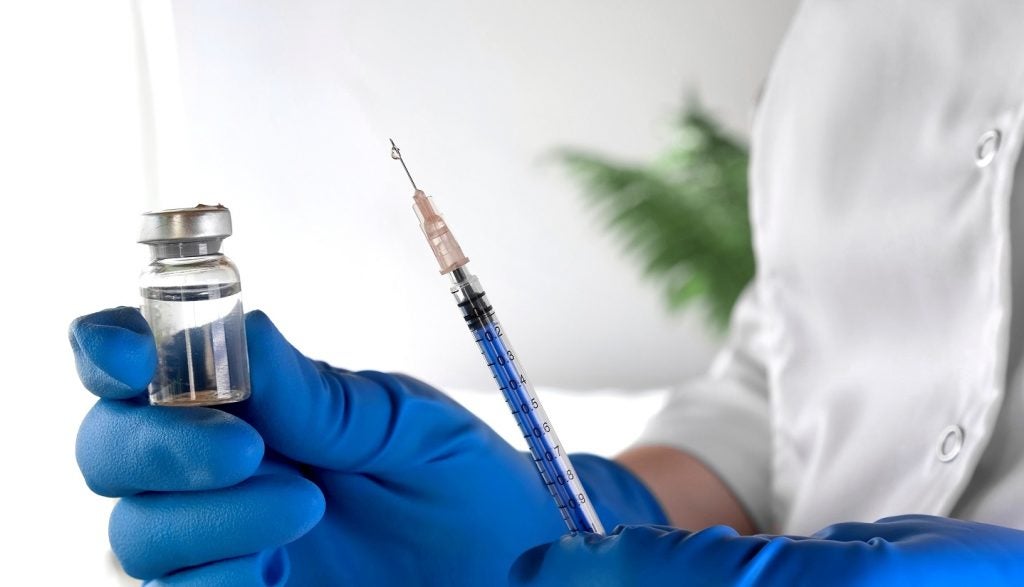
Aside from evaluating the safety and efficacy of a drug or device, clinical trials play other crucial roles. Lord O’Shaughnessy’s review of the commercial trial space in the UK evaluated the two significant reasons that make clinical trials stand out. The first is improved patient access to innovative therapies, improving patient health outcomes. Second, taxpayers do not have to bear the cost of new therapies, which leads to increased availability of funds for public services without compromising patient outcomes.
The report highlighted the decline in commercial clinical trials in the UK. It reported a 44% drop in patient enrolment in these trials from 2017–2018 to 2021–2022, along with a decline in trial initiation in the UK. This begs the question, is this decline recent? If so, what are the reasons for this?
The current landscape
GlobalData’s clinical trials database found that the number of clinical trials conducted in the UK has steadily declined since 2012. The reason for the initial decline is unclear, with one expert attributing it to a general decline in the number of clinical trials being conducted in the EU, of which the UK was a part until 2020. The number of trials conducted in the UK in 2022 was about half the number conducted in 2012.
Meanwhile, some European countries such as Spain and France have managed to sustain or increase their clinical trial activity. The most growth in clinical trial activity was seen in the Asia-Pacific (APAC) region, with countries such as India, South Korea, and Australia increasing their trial activity by as much as three times over the last decade.
GlobalData is the parent company of the Clinical Trials Arena.
The data compiled for the seven countries included all the trials conducted in that year from 2012–2022. These trials were then evaluated as change in the countries’ trial activity with the number of trials conducted in the specific country in 2012 taken as the baseline (one). A trial activity of more than one in the following year shows an increase in the number of trials in the country and less than one demonstrates a decline in the number of trials in that country.
How well do you really know your competitors?
Access the most comprehensive Company Profiles on the market, powered by GlobalData. Save hours of research. Gain competitive edge.

Thank you!
Your download email will arrive shortly
Not ready to buy yet? Download a free sample
We are confident about the unique quality of our Company Profiles. However, we want you to make the most beneficial decision for your business, so we offer a free sample that you can download by submitting the below form
By GlobalDataHowever, there was a decline in the number of trials terminated in all seven countries. The data was taken from GlobalData’s clinical trials database and includes all trials terminated, withdrawn, or suspended in that particular year. This data was then normalised by taking the trials terminated in 2012 as the baseline of one.
Reasons behind the decline in trials in the UK
As obvious as it is to see the decline in the number of clinical trials in the UK, the reasons behind this trend are as complicated to ascertain. Fiona Maini, Principal - Global Compliance and Strategy at Medidata Solutions, thinks the issue is multifaced with Brexit playing a part in this.
An expert explains the additional reason for conducting a clinical trial: “Part of conducting the clinical trial is to set up the supply chain, or logistics for the supply, and marketing authorisations.” They think this may have contributed to companies’ reluctance to see the UK as a preferred trial destination.
Maini said: “If people are considering whether they want to launch the product in the UK [due to Brexit], as we are no longer automatically part of the EMA approval, then they may also consider the bother of conducting a clinical trial in the UK, [with all the time and resource consuming regulatory hurdles that are involved].”
Another reason that has been put forth is the strain the Covid-19 pandemic put on the country’s health system, the National Health Service (NHS). Experts in the field agree that the NHS has stretched its resources and personnel due to the pandemic, which has put great demands on the NHS’s ability to provide resources for conducting clinical trials.
Regulation and regulatory bodies play a part in attracting clinical trial activity. Following Brexit, the Medicines and Healthcare products Regulatory Agency (MHRA), has stopped receiving funding from the European Union (EU).
Maini elaborated on the importance of the MHRA saying: “Having somebody from the MHRA, within your compliance and policy regulatory group is quite a differentiator [for the company].” The lack of resources for the MHRA could in turn increase the trial approval time, thereby decreasing UK’s competitiveness in the global clinical trial scene.
In a UK advanced therapy medicinal product (ATMP) clinical trials report by Cell and Gene Therapy Catapult recorded in 2022, an increase in the number of clinical trials for ATMP from 2017 to 2022 was observed. GlobalData’s clinical trials database showed certain indications, especially oncology, that have shown steady growth in the number of trials in the UK. Cancer trials in the UK have consistently contributed to a quarter of all clinical trial activity in the country in the past decade.
Bold steps to increase trial activity
The O’Shaughnessy report included talks about the general practitioners (GPs) in the trial process. This is not unheard of as US physicians are often involved in the trial space. While there was a generally positive attitude regarding the involvement of GPs in clinical trials, some legitimate concerns were raised that would need to be addressed to successfully implement GPs inclusion.
One of the important concerns is having an infrastructure in place to allow GPs to look up the trials in the area and their status. Maini adds that “having GPs involved is a useful mechanism to get information out to patients and to the public on how they can actually join the trial because obviously, half the problem is actually recruiting patients into trials”.
GPs would be involved not only in recruitment but also in the treatment process. One of the personnel with experience conducting clinical trials in the UK says: “The new advanced therapies require long follow-ups, which could be after 15 years following the therapy. Having GPs involved could facilitate these long follow-ups. However, as the GPs are already stretched for time, this new task could overburden them.”
There is hope for renewed interest in the UK for clinical trials. A recent British Business Bank report showed an increase in venture capital funding for life sciences in the UK, with the sector raising more than £10.5bn ($12.8bn), as well as multiple government grants for innovative therapies.






